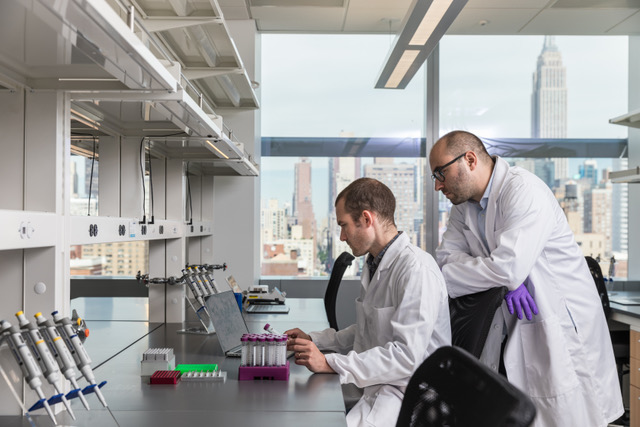 In the past couple of months, we’ve seen some dizzying headlines: “World’s first gene-edited babies created in China, claims scientist,” “AI expert warns automation could take 40% of jobs by 2035” and “Man Marries Virtual Reality Hologram.”
In the past couple of months, we’ve seen some dizzying headlines: “World’s first gene-edited babies created in China, claims scientist,” “AI expert warns automation could take 40% of jobs by 2035” and “Man Marries Virtual Reality Hologram.”
All of these headlines are troubling for various reasons. But they aren’t reasons to reconsider investment in science and technology. I think the opposite is true. We need to support entrepreneurs and technologists who want to use technology to benefit humanity at scale.
Just like nuclear technology can be used to light up a city or annihilate a country, many things have the potential to be used to create or destroy. Yes, genomics, outside the bounds of agreed-upon ethics, might be abused to create designer babies. At the same time, millions of lives could be saved when clinicians are able to harness genomics for preventive and personalized medicine. Yes, artificial intelligence will lead to some job displacement; but it can also assist robots in taking on dangerous tasks, as well as help us understand and solve complex problems such as climate change and patterns of infectious disease. And when someone wants to marry a virtual being, we should see it as one more call to solve the global loneliness epidemic.
About this time last year, my partners and I were thinking about what kind of fund we wanted to bring into the world and the types of businesses we wanted to invest in. As part of the process, we thought a lot about what the future might look like.
After much discussion, we came to the conclusion that regardless of what it looks like, the fundamentals are likely to stay the same. The things that matter most to us today will continue to be the things that matter most to us in the future. They are:
- Well-being – health, the environment and the food we eat
- Work and a sense of purpose
- Human connection
These are the things that make life worth living.
We founded Spero Ventures to partner with revolutionary entrepreneurs who drive progress by building successful companies that both scale and inspire…
…like Tim at Roam Robotics, which makes a flexible, affordable exoskeleton that helps people in sports, life, rehabilitation and work; Ivonna and Gabby at Fathom.ai whose mission is to support every athlete to perform at their full potential; Michael and Matt at Skillshare, which aims to turn the new economy into an open meritocracy by making it possible for people to gain the skills they need; Porter and Ryan at Jopwell, which empowers underrepresented minority candidates to advance their careers; Anthony at SafeTraces, which helps ensure the safety and traceability of our food supply; or Grant at Droneseed, which uses drones to make reforestation safe, efficient and scalable.
We help companies scale their products and businesses to serve billions of customers?—?we’ve done it as operators and product leaders at startups and multi-billion-dollar publicly-traded companies, and now as board members.
If you’re building a company that aims to make an impact on the word at scale, please reach out to us at info@spero.vc.




 In the past couple of months, we’ve seen some dizzying headlines: “
In the past couple of months, we’ve seen some dizzying headlines: “